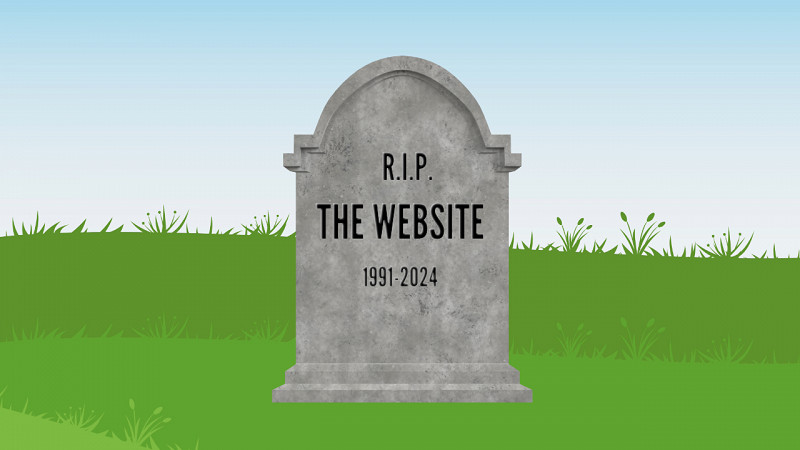Remember the days when a fancy website was the cornerstone of any brand's online presence? In the age of instant fame and social media powerhouses, a single tweet or Instagram post from a Kardashian or YouTuber can launch a product line, even an entire industry – a role previously dominated by The Website.
Websites reigned supreme. They were the digital storefront, the online portfolio, the place where businesses and individuals established their legitimacy and credibility. A well-designed website could make or break your online presence.
However, the rise of social media and influencer culture has disrupted this traditional approach. Social media platforms like Twitter, Instagram and TikTok have empowered individuals with large followings to directly reach a wide audience. These charismatic influencers can promote products or even spark entirely new trends through engaging content like tweets or viral videos. This bypasses the need for a website altogether, something that was difficult to imagine before when websites served as the cornerstone of online presence.
The Two Purposes of Websites
In light of the rise of social media influencers and bite-sized content, websites have been relegated to one of two primary purposes:
1. The Website as the Business Itself
For some companies, the website is the business. E-commerce giants like Amazon and eBay and social media titans like Facebook and Twitter rely on their websites as the cornerstone of their operations. These platforms are not just interfaces; they are the engine driving revenue, customer engagement, and service delivery. They achieve this by:
- Offering a comprehensive user experience: These websites go beyond social media's quick snippets by providing detailed product information, in-depth articles, comprehensive customer support options, and engaging brand stories. This depth builds trust and establishes them as a reliable source.
- Facilitating transactions and fostering communities: They streamline the buying process with secure payment gateways, personalised recommendations, and loyalty programs. Many also cultivate online communities where users can interact, share experiences, and build connections around the brand.
2. The Website as a Digital Business Card
On the other end of the spectrum, some websites function more like a digital business card. Just as physical business cards range from basic to elaborate, these websites serve the same core purpose: to establish legitimacy and provide contact information. They may showcase a portfolio, list services offered, or provide basic company details. Unlike the all-encompassing websites, these are not the primary driver of sales or customer interaction, but rather a trusted source of information for potential customers who have already discovered the brand elsewhere, perhaps through social media. This approach is often seen with:
- Local businesses: Restaurants, cafes, or service providers can use a website to showcase their offerings, highlight reviews, and provide contact information.
- Independent professionals: Consultants, freelancers, or niche service providers can establish their credibility with a portfolio website.
- Specialists and niche businesses: Businesses catering to specific audiences might not require a full-fledged e-commerce platform, but a website can effectively communicate their expertise and establish trust.
The Enduring Value of a Website
So, does this mean the website is dead? Not necessarily. The rise of social media and influencer marketing has undoubtedly changed the digital landscape. But websites still play a crucial role, depending on the nature of your business.
More importantly, social media thrives on immediacy and fleeting trends. A catchy tweet or a viral video might generate a buzz, but its impact often fades within weeks or months, buried under an avalanche of new content. Websites, on the other hand, offer a stable and enduring presence. They serve as a digital storefront, a comprehensive information hub, or a trusted point of contact, all existing outside the ever-churning cycle of social media trends. This longevity allows businesses to build trust and establish themselves as a reliable source of information in the ever-expanding digital landscape.
The key takeaway? Understand your target audience and the nature of your business. Then, craft your online presence, website or otherwise, to best suit their needs and your goals.



